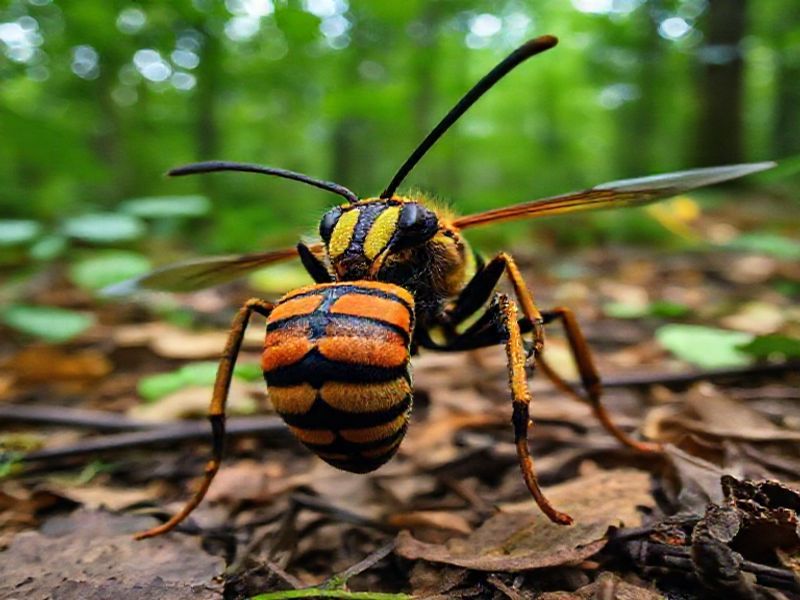Murder Hornets: The Uninvited Guests Crashing the Global Party
# **Murder Hornets: The Uninvited Guests Crashing the Global Party**
Buckle up, folks, because the internet’s latest obsession isn’t a celebrity feud or a viral dance trend—it’s a buzzing, stinging, winged menace: the Asian giant hornet. Yes, you read that right. The world has collectively decided that 2020 wasn’t chaotic enough, so we’ve invited (or rather, been invaded by) nature’s own action hero to join the party. But why are these hornets trending globally, and what’s the big deal? Let’s dive in.
### **The Rise of the Murder Hornets**
First things first, let’s address the elephant in the room—or should we say, the hornet in the room? The Asian giant hornet (Vespa mandarinia) has been making headlines for all the wrong reasons. These hornets, native to East and Southeast Asia, are the stuff of nightmares. Imagine a hornet the size of your thumb, with a sting that can pierce beekeeping suits and deliver venom that can dissolve human flesh. Yikes.
The hornets gained global attention when they were spotted in the Pacific Northwest of the United States in 2019. Since then, they’ve become the internet’s favorite (or least favorite) topic, sparking memes, panic, and a collective desire to never step outside again.
### **Cultural Context: From Folklore to Internet Fame**
In their native regions, Asian giant hornets have long been a part of cultural folklore and urban legends. In Japan, they’re known as “suzumebachi,” and their presence is often associated with ominous omens. But in the age of the internet, these hornets have transcended cultural boundaries to become a global sensation.
Social media has played a significant role in amplifying the hornets’ fame—or infamy. Memes featuring the hornets as the ultimate villains have gone viral, with users joking about the “murder hornets” taking over the world. Twitter, Instagram, and TikTok are flooded with content ranging from educational posts to humorous takes on the hornets’ invasion.
### **Social Impact: Fear, Panic, and a Dash of Humor**
The arrival of the Asian giant hornets has had a profound social impact. On one hand, there’s genuine concern about their potential to disrupt ecosystems and pose a threat to humans. On the other hand, the internet has turned the hornets into a meme sensation, providing a much-needed dose of humor in these trying times.
The hornets’ sting is not to be trifled with—it can be fatal to those allergic to venom and can cause severe reactions in others. This has led to increased awareness about bee and hornet safety, with experts advising people to avoid disturbing nests and to seek medical attention if stung.
### **Why This Topic is Significant**
The Asian giant hornet invasion is significant for several reasons. Firstly, it highlights the importance of biodiversity and the delicate balance of ecosystems. The hornets are a natural predator of honeybees, and their presence can have devastating effects on bee populations, which are crucial for pollination and agriculture.
Secondly, the hornets’ arrival underscores the need for global cooperation in managing invasive species. The spread of the Asian giant hornet is a reminder that environmental issues know no borders, and collective efforts are required to address them.
Lastly, the hornets’ internet fame is a testament to the power of social media in shaping public discourse. The way the internet has latched onto this topic shows how quickly information (and misinformation) can spread, and how humor can be used to cope with real-world issues.
### **Conclusion: To Sting or Not to Sting?**
In conclusion, the Asian giant hornet is more than just a buzzing insect—it’s a global phenomenon. From cultural folklore to internet memes, these hornets have captured the world’s attention. While their presence poses real threats, the internet’s response has been a mix of fear, panic, and humor.
So, what can we learn from this? Perhaps it’s a reminder that even in the face of real dangers, a little humor can go a long way. And maybe, just maybe, we should all invest in some serious beekeeping suits. Just in case.







